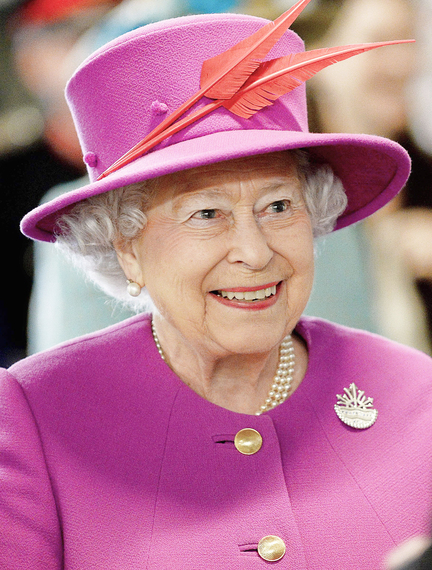Last month, two media events converged - the election of Donald Trump to the Presidency and the first run in the US of The Crown, the Netflix series about Queen Elizabeth. Both proved remarkably popular (at least on TV), and watching them both back to back, so to speak, I began to wonder if the US would not be better off under a Monarchy as well.
Let me explain.
I am married to a British woman, and as a result, we now spend about half our time in the UK and half in the US. As a red blooded American, I had a natural disdain for the Royal Family and all the trappings of Royalty. "Nonsense", I would say. "A complete waste of money. They should all get jobs."
In Britain, those who are opposed to the idea of a Monarchy are called Republicans, which makes them quite different from the Republicans who put Trump in the White House. Ironically, despite it being a remnant from Medieval times, the Monarchy is still quite popular in the UK (and probably increasingly so here in the US with the airing of The Crown).
In order to get a better appreciation for my adopted second home, I read Winston Chruchill's History of the English Speaking Peoples, in four volumes (they have a rather long history). Churchill, by the way, won the Nobel Prize for literature. Besides being a great statesman, he is a hell of a writer.
As an American, (and as the product of TV), I naturally assumed that most of the books would be consumed by Henry VIII and his six wives. (That was a great TV series also!). I was thus astonished to see that Churchill barely devotes a chapter to all of the Tudors. On the other hand, he devotes nearly an entire volume to The English Civil War (1642-1651). This is the time when the Parliamentarians (the Roundheads) went to war with the Royalists (the Cavaliers). The Roundheads won, culminating in the beheading of King Charles the First in 1649 and the replacement of the Monarchy with a Republican form of government under Cromwell.
To squash an entire volume (more or less) into one sentence, the experience of a Republic was so terrible (the Roundheads under Cromwell were the Taliban of their time), that by 1660, King Charles II was returned to the throne to everyone's delight and relief.
Since then, the concept of a Monarchy has never really been questioned again. The Monarchy provides Britain with a sense of stability; a final firewall against anything going too far astray. It is not a bad idea.
In America, we don't have such a stable center. Up until now, we have been very fortunate in that we have not had a crazy person in the White House. This may be about to change for the first time in our relatively short history (compared to the British that is).
Legend has it that at the end of the Revolutionary War, George Washington was offered the Crown and the chance to become King of America. He turned it down. Maybe that was a mistake in retrospect.
George and Martha Washington had no children, but there are nearly 8,000 descendants of the Washington line, by his brothers, Augustine and Samuel. Samuel Washington married 5 times, so there was no shortage of heirs.
Had Washington accepted, the King of America today would be Paul Emery Washington, a retired building supply company manager who lives in.. where else, Valley Forge.
Maybe it's time to give him a call?

